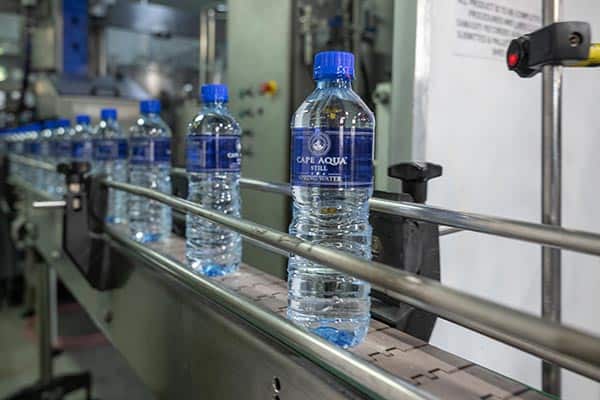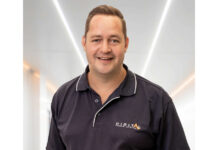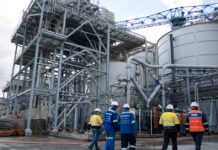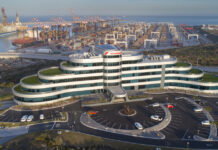By Diane Silcock
CAPE AQUA is a water bottling company located on a farm in the Ceres Valley at the foot of the Hugo Mountain range, with a proud Cape heritage of 20 years.
Sustainability is important to the company. They use polyethylene terephthalate (PET) bottles which comprise recycled material. Whitehead says PET is infinitely recyclable and the bottle’s light weight also helps reduce carbon footprint when it comes to transportation.

They will also be adopting a cap that’s tethered to the tamper band of the bottle thereby ensuring that it remains attached to the bottle after use; an EU requirement. Following a recent trip to Europe, Whitehead says that across the UK and Europe the majority of plastic caps are now tethered to containers.
Cape Aqua’s spring water is bottled at its source and rated one of the purest on the market with a very low Total Dissolved Solids (TDS) level of 19, giving the water its crisp, refined taste. Whitehead explains that taste varies from company to company as each source will have a different mineral content based on the geography of the region.
The company’s factory complies with world-class standards for the bottling of natural source water, meeting food safety as well as quality control standards. Monitoring and auditing are undertaken daily. “From the time that our water comes into the factory, our processes are completely free of human intervention. It goes directly to the filling lines and into an air-secure filling environment and on to being automatically capped.”
Whitehead warns that some water stores are selling water that is unverified and unaudited and therefore may not be safe. He points out that many restaurants are selling their own brands of water without doing the necessary checks to determine the legitimacy of the company providing the water and the processes utilised.
Cape Aqua undertakes contract packing for certain retailers and customers, as well as produces private labels for some customers. They also supply to certain foreign airlines. Their two brands are Cape Aqua for retail, and Hydr8 is their general cash and carry market brand.
In addition to source water, Cape Aqua has a range of sparkling flavoured waters which they produce at their factory in Strand. Their own brand water is distributed via their factory shops in Strand, Stellenbosch, Kuilsrivier, Kenilworth, Mailand, Fish Hoek, Durbanville and Ceres.
Whitehead estimates the bottled water market in South Africa to be in the region of R5-R6-billion with two major companies holding the majority of the share of the market. He says, that Cape Aqua’s brand strategy is to become a dominant regional brand rather than being a national brand.
Cape Aqua owner Richard Whitehead, says, “As a company we would like to leverage our export opportunities based on our fortunate geographical position in the world, that being the famous Cape of Good Hope and Cape Town and the world-renowned Ceres Valley from where our water is sourced. A new bottle has been developed for this purpose and we expect to have the new packaging ready within a month or two.”
With the opportunity to now export, they intend to capitalise on their Ceres Valley location. “The Ceres connotation is world famous due to its Cape location, quality wine and fruit juices. We can capitalise on those qualities and recognisable trademarks. Our aim is that our water will become synonymous with the Cape,” concludes Whitehead.















